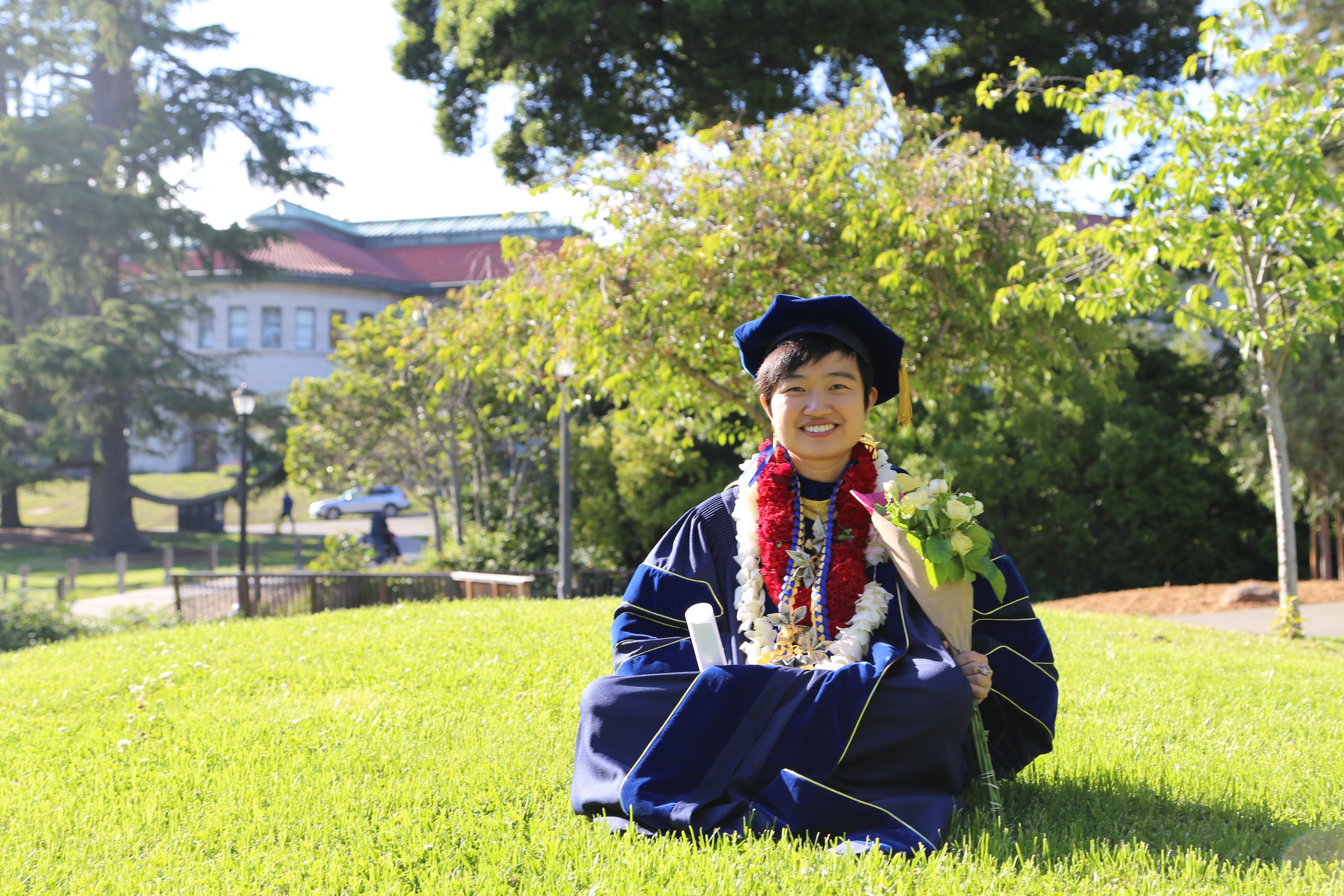
My research
Prior to joining NTU as Assistant Professor, I was formally trained in Linguistics and received my Ph.D. in Special Education (with a designated emphasis on New Media) from UC Berkeley and San Francisco State University studying the interactions of non-speaking autistic individuals.
I pursue an interdisciplinary research agenda that bridges diverse but complementary methodological approaches (Cognitive Science, Learning Sciences, Linguistics, EMCA) with clinical/educational practices. With a focus on various disabled populations—autism, dyspraxia, blindness, stuttering etc.—I integrate video- and micro-analyses of everyday embodied interaction with the ethical design of new therapeutic tools for human expression and communication. Drawing from my background in musical improvisation and technology, I design interactive environments and interventions that can significantly aid in communicative development. Centering the body as a medium for perception, cognition and interaction, my research subverts normative modes of experiencing and interacting, and surfaces the diverse communicative modalities (for example, gesture, rhythm, music, touch) of those whose expressive actions are often marginalized.
Publications
Peer-reviewed journal articles
Chen, R. S. Y. (2024). Bridging the gap: fostering interactive stimming between non-speaking autistic children and their parents. Frontiers in Integrative Neuroscience, 18, 1374882.
Pudlinski, C., & Chen, R. S. Y. (2023). Destigmatizing disfluency: Stuttering in peer telephone support. Journal of Interactional Research in Communication Disorders, 14(2), 220-240. http://dx.doi.org/10.1558/jircd.24376
Park, I., Chen, R. S. Y., Gorisch, J., Park, S. H., Tadic, N., & Yasui, E. (2023) The use of interlocking multi-unit turns in topic shifts. Pragmatics.
Chen, R. S. Y. (2022). Improvisations in the embodied interactions of a non-speaking autistic child and his mother: practices for creating intersubjective understanding. Cognitive Linguistics, 33(1), 155–191.
http://dx.doi.org/10.1515/cog-2021-0047
Velautham, L., & Chen, R. S. Y. (2021). Can’t clap to a beat? How rhythmically challenged people experience and strategize keeping time to music. Psychology of Music, 50(4), 1254–1266. http://dx.doi.org/10.1177/03057356211049564
Chen, R. S. Y. (2021). The researcher’s participant roles in ethical data collection of autistic interaction. Social Interaction. Video-Based Studies of Human Sociality, 4(2). http://dx.doi.org/10.7146/si.v4i2.127298
Tancredi, S., Chen, R. S. Y., Krause, C., Abrahamson, D., & Gomez Paloma, F. (2021). Getting up to SpEED: Special Education Embodied Design for sensorially equitable inclusion. Education Sciences and Society — Open Access, 12(1), 114–136. http://dx.doi.org/10.3280/ess1-2021oa11818
Hoey, E. M., DeLiema, D., Chen, R. S. Y., & Flood, V. J. (2018). Imitation in children’s locomotor play. Research on Children and Social Interaction, 2(1). http://dx.doi.org/10.1558/rcsi.36016
Conference proceedings
Chen, R. S. Y. (2021). Embodied design for non-speaking Autistic children: the emergence of rhythmical joint action. In M. Roussou, S. Shahid, J. A. Fails, & M. Landoni (Eds.), Interaction Design and Children (pp. 648–651). Association for Computing Machinery. http://dx.doi.org/10.1145/3459990.3463396
Chen, R. S. Y. & Cekaite, A. (2021, June). The transformative role of a stimming object in Autistic interaction. In D. Keifert, K. Gutiérrez, M. H. Goodwin, A. Marin (Chairs), Dignity affirming learning contexts. Symposium conducted at the meeting of the International Conference of the Learning Sciences, Bochum, Germany.
Chen, R. S. Y., Ninh, A., Yu, B., & Abrahamson, D. (2020, June). Being in touch with the core of social interaction: Embodied design for the nonverbal. In M. Gresalfi & I. Horn (Eds.), Proceedings of the annual meeting of the International Society of the Learning Sciences. Nashville, TN: Vanderbilt University.
Book chapters
Yu, B., & Chen, R. S. Y. (2024). Social communication and language development in diverse autistic learners. In P. J. Wolfberg & K. D. Buron (Eds.). Learners on the Autism Spectrum: Preparing highly qualified educators and related practitioners—Instructor manual. NY, USA: Routledge.
Streeck, J. & Chen, R. S. Y. (2023). Echo and synchrony: Social attunements in blind children’s repetitive movements. In B. L. Due, (Ed.), Everyday without sight: The practical accomplishment of ordinary activities when having a visual impairment. London, UK: Routledge.
Tancredi, S., Chen, R. S. Y., Krause, C., & Siu, Y. (2022). The Need for SpEED: Reimagining Accessibility through Special Education Embodied Design. In S. L. Macrine, J.M.B. Fugate (Eds.), Movement matters: How Embodied Cognition informs teaching and learning (pp. 197–216). Cambridge, Massachusetts, USA: MIT press. http://dx.doi.org/10.7551/mitpress/13593.003.0021
Abrahamson, D., Tancredi, S., Chen, R. S. Y., Flood, V. J., & Dutton, E., (2021). Embodied Design of Digital Resources for Mathematics Education: Theory, Methodology, and Framework of a Pedagogical Research Program. In Routledge Handbook of Digital Resources for Mathematics Education. NY, USA: Routledge.
Sterponi, L., & Chen, R. S. Y. (2020). Situating Autistic emotionality in interactional, sociocultural, and political contexts. In S. E. Pritzker, J. Fenigsen & J. M. Wilce (Eds.) The Routledge Handbook of Language and Emotion (pp. 273–284). NY, USA: Routledge.